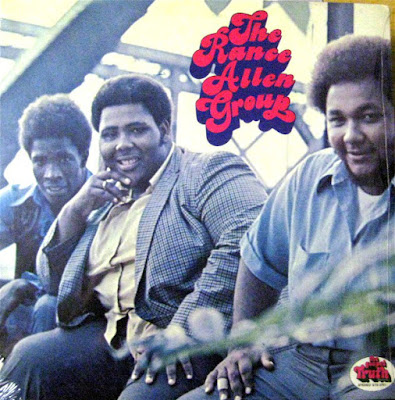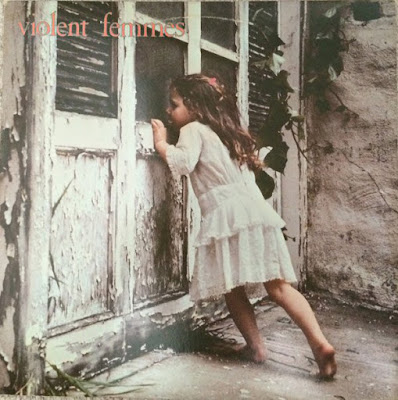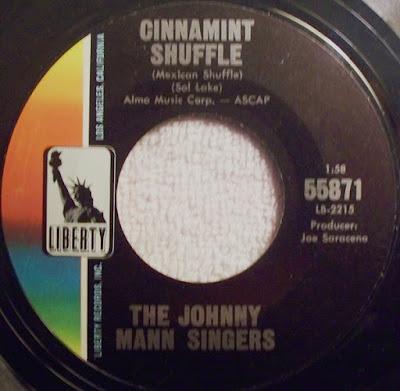“Up Above My Head” – The Rance Allen Group * Written by: Trad Arr. Rance Allen * Produced by Dave Clark and Toby Jackson * LP: The Rance Allen Group * Label: Gospel Truth Records
The choruses in the early versions of this traditional song, including the classic 1948 version by Sister Rosetta Tharpe and Marie Knight, conclude that “I really do believe there’s a heaven somewhere.” In this version by the Rance Allen Group, from Monroe, Michigan, the conclusion is that “I really do believe there’s a God somewhere.” Although Allen’s delivery is conviction itself, there’s a loosey-goosey aspect in that word choice that could qualify this as a deist anthem. Yes, this God may take the form of who knows what and reside who knows where, but I know He/She must be there. The IIm chord they’ve adapted into the chorus reminds you of the “when Jesus walked” line in the Edwin Hawkins’s Singers “Oh Happy Day.” Rance Allen is currently a Bishop for the Church of God in Christ in Michigan. You can see this vintage version of the group in the 1972 Wattstax film.
Author: Kim Simpson
“Kiss Off” (1983) – The Violent Femmes
“Feelings” (1966) – The Grass Roots
In With Six You Get Egg Roll, Doris Day’s final film, the Grass Roots show up as the band for the psychedelic teen club sequence. Their song choice is a good teen-friendly one, because they usually sounded adult-friendly enough to encroach on Gary Puckett’s turf. With its marimba lines, “Feelings” channels the Rolling Stones’ “Under My Thumb,” and the band sounds more weirdly alluring than they ever would again. Curiously, Arthur Lee’s Love, who used to be called the Grass Roots before having to change the name thanks to these LA rivals, toyed with the melody line from the verses of “Feelings” for the verses in his band’s “A House Is Not a Motel.”
“Enamorado” (1963) – Keith Colley
“Cinnamint Shuffle (Mexican Shuffle)” (1966) – The Johnny Mann Singers
“Cinnamint Shuffle (Mexican Shuffle)” (1966) – The Johnny Mann Singers * Written by Sol Lake * Produced by Joe Saraceno * 45: “Cinnamint Shuffle (Mexican Shuffle)” / “Rovin’ Gambler” * Label: Liberty * Charts: Billboard Bubbling Under #126
There’s a whole category of records that found airplay and chart listings because of their involvement in TV ads. The Johnny Mann Singers’ “Cinnamint Shuffle” was a notable one from 1966. “Cinnamint,” along with “Teaberry,” were Clark’s chewing gum flavors and commercials for both of these featured consumers popping a stick of it into their mouths and dancing a two-second shuffle before carrying on with their business. The ad campaign’s song was a familiar one: “Mexican Shuffle,” written by Sol Lake, which was a keynote track on Herb Alpert and the Tijuana Brass’s South of the Border, a Billboard top ten album in 1964 (the “Mexican Shuffle” single hit #88). The Johnny Mann Singers’ 1966 version of the song, sporting the new title of “Cinnamint Shuffle (Mexican Shuffle),” managed to squeak into Billboard‘s “bubbling under” chart, peaking at #126. (Johnny Mann had worked as the musical director for the Joey Bishop Show from 1961-1964, incidentally.)
“Lower Level” (1967) – The Beau Brummels

“Lower Level” (1967) – The Beau Brummels * Written by Ron Elliott * Produced by Lenny Waronker * 45: “Magic Hollow” / “Lower Level” * Label: Warner Bros.
Chronically out of print Beau Brummels song—the B-side to their atmospheric and idyllic “Magic Hollow” A-side. This has an airiness to it that suggests sweet oblivion and mind satisfaction within an enormous, bustling public building where open windows send your thoughts drifting out over the traffic. The group was a trio at this point, just Sal Valentino, Ron Elliott, and Ron Meagher.





